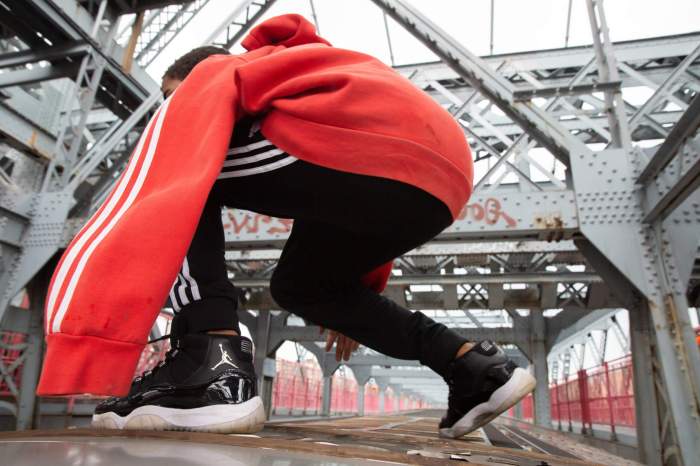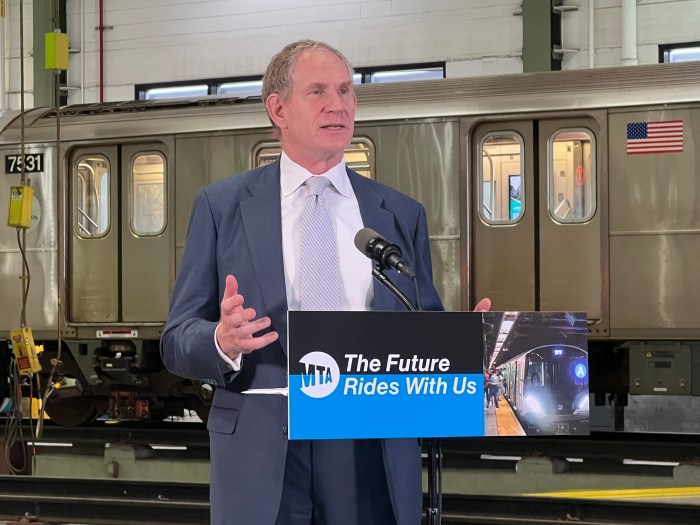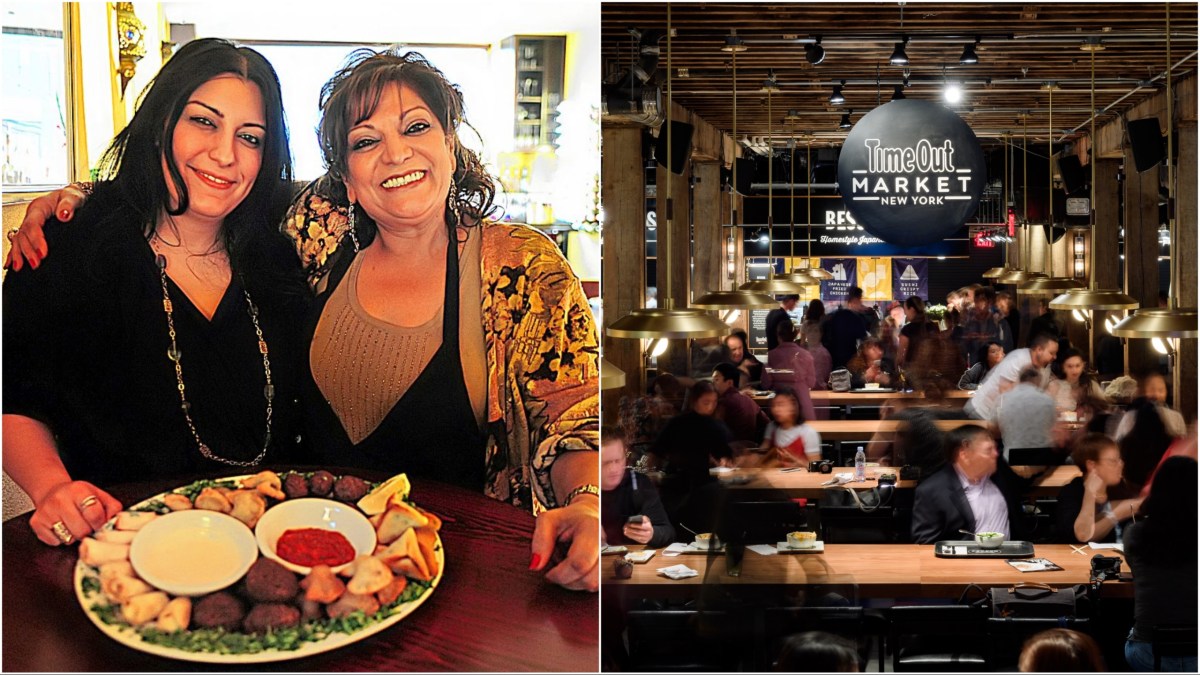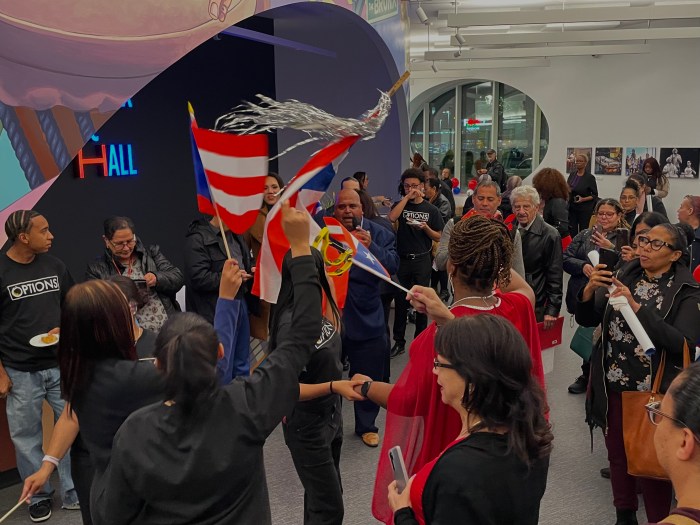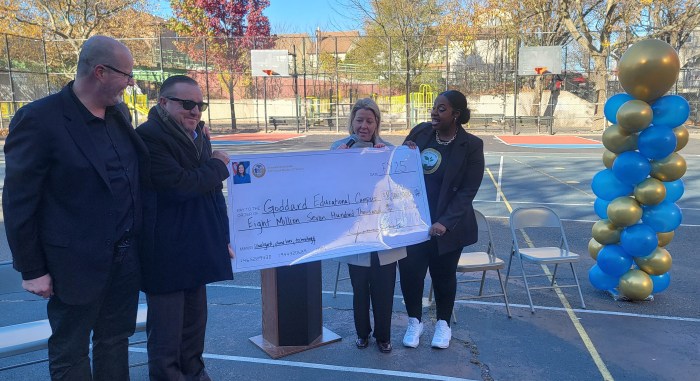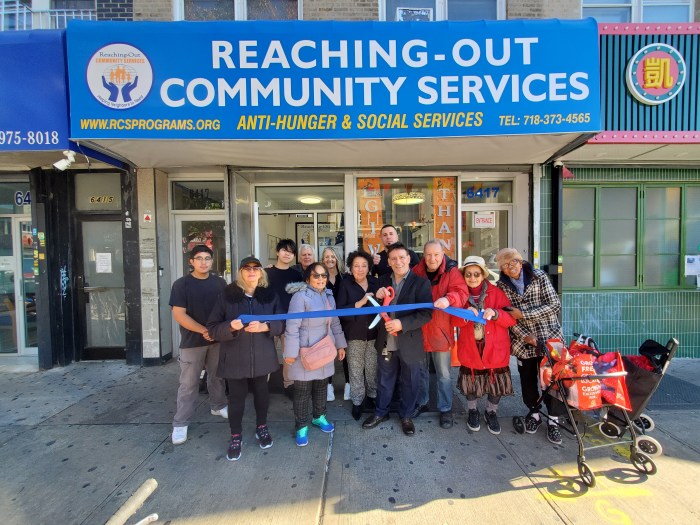
Accessibility groups are contesting the MTA’s removal of bus stops along the M14 route in the latest fight over efforts to improve service along Manhattan’s 14th Street.
A lawsuit, being brought by the 504 Democratic Club and Disabled in Action, argues that the MTA violated the Americans with Disabilities Act when it removed 14 stops along the M14 route as part of Select Bus Service upgrades.
“The plan … really is a disaster for people with disabilities and low-income seniors,” said Michael Schweinsburg, the president of the 504 Democratic Club, at a news conference Wednesday near one of the removed stops on 14th Street.
Transportation experts and advocates have long viewed adjusting bus stop spacing as a key element of speeding up service. The fewer stops, the less time buses must spend at the curb, pulling into and out of traffic. The MTA has unusually close bus stops, when compared with other cities, with a guideline for stops placed every 750 feet, according to the authority.
But residents along the M14 with disabilities said it is too onerous to walk or use their wheelchair to travel several more blocks to catch the bus. Some also spoke out against the bike lanes installed on 12th and 13th streets, which they said made it harder to receive deliveries.
Shams Tarek, an MTA spokesman, said stops were spaced along the M14 SBS (for Select Bus Service) so that commuters wouldn’t have to walk more than another two blocks to the nearest stop.
“We will defend against this lawsuit vigorously on behalf of bus riders, who deserve a modern and reliable service that moves people efficiently," Tarek said in a statement. "Rider advocates observe that it can be faster to walk than take the bus — we’re fixing that. The bus system is fully accessible and far better for the environment than driving in private cars and taxis.”

Busway advocates plan rally
The new lawsuit follows an appeal from block associations that have successfully stalled the city’s implementation of its planned 14th Street busway, which would ban private through traffic on most of the corridor between 6 a.m. and 10 p.m., to give the M14 SBS and local deliveries near-exclusive access to the street.
Private cars could access the block to make pickups and drop-offs, but would be required to turn off the next available street. The city estimates that the changes would improve M14 service by 30% along one of the busiest and slowest routes in the five boroughs.
Arthur Schwartz, the plaintiffs’ attorney and a 12th Street resident, has waged a multiyear war on the busway and nearby bicycle lanes. On Wednesday, he likened the fight to that of revered urbanist and activist Jane Jacobs.
“Our communities — Greenwich Village and Chelsea — are the great places they are because 60 years ago Jane Jacobs lead a fought against … Robert Moses, who wanted to run a highway down Fifth Avenue,” Schwartz said. “Jane believed in community-based planning.”
David Gurin, an urban planner and friend of Jacobs’, said it was “absurd” to evoke Jacobs, who would be “diametrically opposed” to Schwartz’ fight. He cited her landmark book “The Death and Life of Great American Cities,” where she called for an “attrition of automobiles” and wrote that “making conditions less convenient for cars is what will save cities.”
“The highway in Washington Square in fact was a fight against automobiles, as well. He is advocating a position that would allow automobiles to continue to dominate 14th Street. She would be diametrically opposed,” said Gurin, who had worked as a planner under the Ed Koch administration and helped found Transportation Alternatives.
The transportation advocacy group is aggressively pushing back against opposition to the busway — not necessarily against M14 stop removal.
Dozens of supporters joined Transportation Alternatives outside of Schwartz’s West Village home Wednesday evening, chanting “drop the suit” as the attorney stood by his porch.
“The MTA has done scientific studies showing this stuff works. We need to let it happen,” said Stanley Sherman, a 14th Street resident since 1975 and supporter of the busway.
Schwartz came out bearing savory pastries for ralliers — but then went on to continue to compare busway supports to the KKK: “where are your crosses? Where are your hoods?” he asked.
The attorney described the rally as civil but inappropriate and said he felt recent altercations on 14th Street, like turn restrictions, have sufficiently sped up traffic.
“This plan is not going to reduce cars,” Schwartz said. “They’re all for-hire vehicles. They’re going to move to the side streets.”




